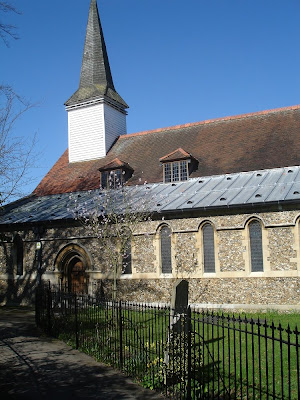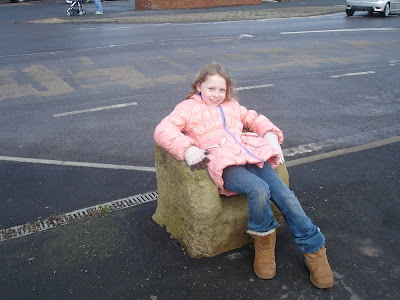The idea that you can catch moments in a day by photographing them has taken hold at the moment, see previous post.
What for instance flows through our minds, aimless thoughts like a stream of lava trailing down a mountainside. Today for we were going to the Cats pub for a ploughman's lunch, so my mind started to dwell as to when ploughman lunch came into being. Of course it has been with us for centuries, it was the only meal you could take out into the fields, cheese and bread, with either some cider or little beer, water was not drunk in the medieval period. In the 19th century, it would have been cold tea, as the farm labourers sprawled near the hedges having their mid day meal. The plough horses would have been nearby noses deep in the sack nose bags having a well earned rest and feed. These horses of courses in the early 20th century would be sent overseas as transport and riding horses for the guns of the 1st World War, many, many of them never returned, and we saw the beginning of mechanisation in our farming history.
Two books came down from the shelves, Dorothy Hartley, The Countryman's England and Food in England, they both document a fascinating part of history in the early 20th century and before. I could fill this blog with Hartley's photographs of rural England, the horses, the women working out in the field, the cottages huddled somewhere with no electricity or phone lines, and the lanes bare of cars (not something to easily imagine now). The different cheeses that came from all parts of the country, England is a bit of a misnomer in the titles, what of the white cattle of Gwent, (Glamorgan cheese) bred for their milk and its cheese making qualities.
The Cats pub is caught in a time warp, a real original pub, beamed, with the same customers coming back and chatting with a warm familarity that comes of long association. You can see from the following photo that it was originally a small cottage with a later Victorian extension tacked on at the back. It is full of a collection of cat objects, they line mantlepieces, pictures on the wall, in the loos, around the fireplaces, which Wally always keeps going in winter. There are no fancy meals here, its sandwiches or a ploughman and only on certain days in the week.
When I was a child, I had a nanna who lived in Wednesbury in the Midlands, she was the mother of one of my stepmothers. And I would be left there on occasions, her house was an entranced terrace house, one tap in the kitchen, (no bathroom) cold water of course, and an outside loo. One of the things I remember was Sunday tea, which was of course ham and salad, No fancy french dressings or mayonnaise of course, but lettuce, cucumber, tomato, radishes and spring onions with the obligatory Heinz Salad cream - it was considered a feast.. The following photo taken from Hartley shows spring onions being washed in the stream ready for market, a very much simpler style of direct production, than those terrible aisles we must prowl in the supermarket, and the half dead vegetables and fruit flown in from abroad....

 |
| A glass of stout and Abbot's Ales |
 |
| Note the large slice of cheese, Heinz salad cream and Branston Pickle |
 |
| The wood-burning stove with strange cat sitting in front |
 |
| the tiny cottage backed by the larger house |














































